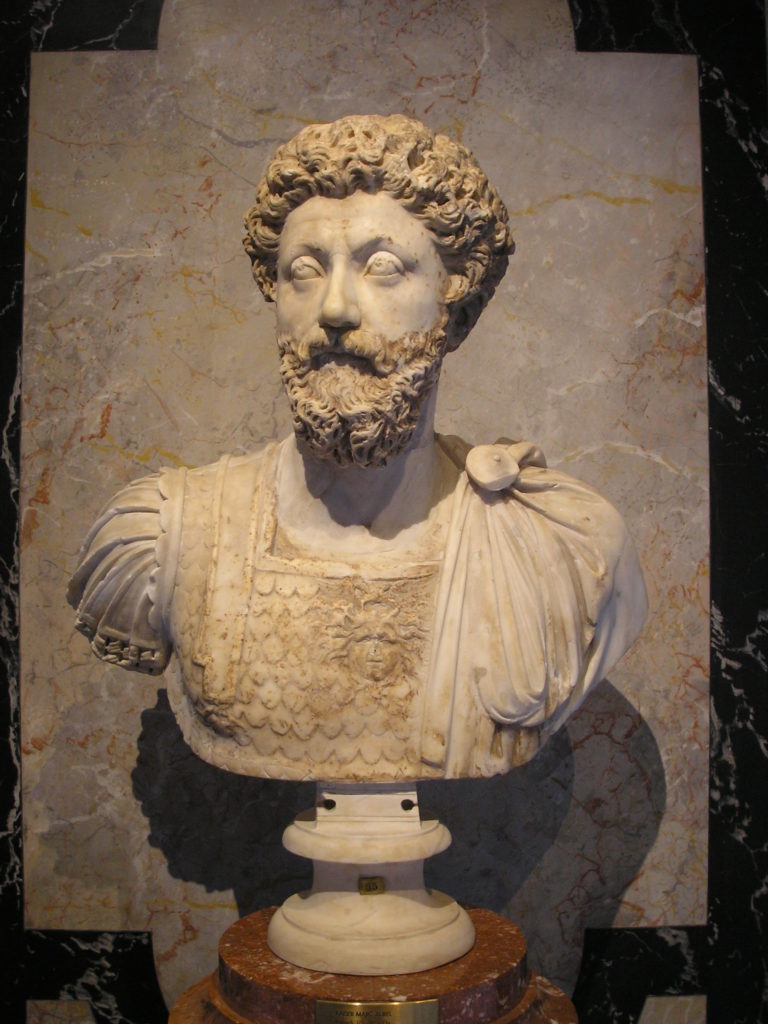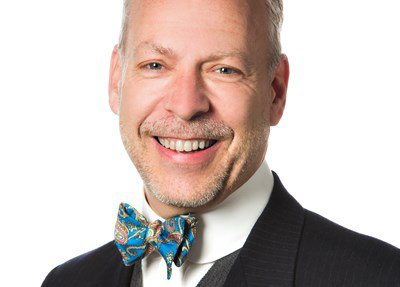How Marcus Aurelius Influenced Adam Smith (No, Really) – Article by Paul Meany

Adam Smith’s appreciation for the Stoic emperor’s writings is evident in his own work.

Who Was Marcus Aurelius?
Marcus Aurelius Antoninus Augustus was the last of the five good emperors of Rome. He was born in 121 AD, reluctantly became emperor in 161 AD, and reigned for 19 years until his death in 180 AD. His reign was punctuated by numerous wars during which he repelled Rome’s enemies in long campaigns. When not at the frontiers of the empire, he spent his time administering the law, focusing his attention particularly on the guardianship of orphans, the manumission of slaves, and choosing city councilors.
Lord Acton memorably stated, “Power corrupts, absolute power corrupts, absolutely.” Lord Acton’s aphorism is, for the most part, true, but there was one exception to it in history: Marcus Aurelius. He famously had a keen interest in philosophy. Perpetually practicing self-control and moderation in all aspects of his life, he was the closest any person ever came to embodying Plato’s ideal of the “philosopher king.”
While on the front lines of his campaign against the German tribes, Marcus Aurelius wrote his own personal diary. This was originally titled Ta Eis Heauton, meaning To Himself in Greek. Subsequent translations of the text changed the title numerous times; we now know it as Meditations. In Meditations, Marcus Aurelius writes his personal views on the Stoic philosophy.
He focuses heavily on the themes of finding one’s place in the cosmic balance of the universe, the importance of analyzing your actions, and being a good person. Asserting that one should be judged first and foremost on their actions, he decisively urged us to “waste no more time arguing about what a good man should be. Be one.” Meditations is a masterpiece of Stoic philosophy, brimming with insightful, emotional and, most importantly, useful observations on morality and the human condition.
Who Was Adam Smith?
Adam Smith was a Scottish moral philosopher who is renowned as one of the first modern economists. He was born in 1723 in Kirkcaldy and died in 1790. He is famous for his two seminal works, The Wealth of Nations and The Theory of Moral Sentiments. His work was massively influential on classical liberal thought as he was one of the first defenders of the free market.
In The Wealth of Nations and The Theory of Moral Sentiments, Smith articulated a persuasive case for the efficacy and morality of a free-market commercial society. Ludwig Von Mises, speaking about Smith’s works, wrote that they “presented the essence of the ideology of freedom, individualism, and prosperity, with admirable clarity and in an impeccable literary form.” Classical liberal economist Milton Friedman often wore a tie bearing a portrait of Adam Smith to formal events.
Adam Smith’s Readings of Marcus Aurelius
These two figures lived in vastly different times, under vastly different circumstances, so how did Marcus Aurelius ever influence Adam Smith? The answer lies in the ancient philosophy of Stoicism.
Stoicism was one of the three major schools of Greek philosophy in the ancient world. It was founded in Athens in the 3rd century BC by a man named Zeno of Citium. The name “Stoic” was given to the followers of Zeno, who used to congregate to hear him teach at the Athenian Agora, under the colonnade known as the Stoa Poikile. Over time, Stoicism expanded and developed sophisticated views on metaphysics, epistemology, and ethics.
While Stoicism posits numerous views on a huge variety of topics, its most interesting and relevant observations are on ethics. The Stoics were concerned with perfecting self-control which allowed for virtuous behavior. They believed that, through self-control, one could be free of negative emotions and passions which blinded objective judgment.
With a peaceful mind, the Stoics thought, people could live according to the universal reason of the world and practice a virtuous life. Marcus Aurelius described the ideal Stoic life in book three of Meditations, writing, “peace of mind in the evident conformity of your actions to the laws of reason, and peace of mind under the visitations of a destiny you cannot control.”
Adam Smith was educated at the University of Glasgow where he studied under Francis Hutcheson. Hutcheson was a Scottish intellectual and a leading representative of the Christian Stoicism movement during the Scottish Enlightenment. He hosted private noontime classes on Stoicism which Adam Smith often attended. Smith’s preference for Marcus Aurelius was encouraged by Hutcheson, who published his own translation of Meditations.
In The Theory of Moral Sentiments, Smith referred to Marcus Aurelius as “the mild, the humane, the benevolent Antoninus,” demonstrating his deep admiration for the Stoic emperor. Marcus Aurelius influenced Adam Smith in three main areas: the idea of an inner conscience; the importance of self-control; and in his famous analogy of the “Invisible Hand.”
Our Inner Conscience
Both Marcus Aurelius and Adam Smith believed that the key to understanding morality was through self-scrutiny and sympathy for others.
Marcus Aurelius wrote Meditations in the form of a self-reflective dialogue with his inner self. He thought that moral conviction lay within “the very god that is seated in you, bringing your impulses under its control, scrutinizing your thoughts.’’ He interchangeably referred to this inner god as the soul or the helmsman and believed that it is a voice within you that attempts to sway you from immoral doings; we now call this a conscience.
Similarly, Smith emphasized the role of people’s innermost thoughts. A key aspect of Smith’s moral philosophy in The Theory of Moral Sentiments is the impartial spectator. Smith theorized that morality could be understood through the medium of sympathy. He thought that before people acted they ought to look for the approval of an impartial spectator.
“But though man has… been rendered the immediate judge of mankind, he has been rendered so only in the first instance; and an appeal lies from his sentence to a much higher tribunal, to the tribunal of their own consciences, to that of the supposed impartial and well-informed spectator, to that of the man within the breast, the great judge and arbiter of their conduct.”
The Importance of Self-Control
The Stoics listed four “cardinal virtues” — wisdom, justice, courage, and temperance — for which they held great reverence. These were believed to be expressions and manifestations of a single indivisible virtue. Smith used slightly different names, but he endorsed the same set of virtues and the idea that they were all facets of one indivisible virtue.
Smith and Aurelius had a mutual appreciation for the virtue of self-control. They both believed in an impartial, self-scrutinizing conscience that guided morality: while Aurelius called it the God Within, Smith called it the Impartial Spectator.
Marcus Aurelius said, “You have power over your mind — not outside events. Realize this, and you will find strength.” The primacy of self-control is intrinsic to the Stoic philosophy. In a similar vein of thought, Smith writes that “self-command is not only itself a great virtue, but from all other virtues seem to derive their principal lustre.” This respect for self-control was encouraged and cultivated by Smith’s Impartial Spectator and Marcus Aurelius’ Inner God.
The Invisible Hand
Marcus Aurelius argues that we must work together in common cooperation in order to improve humanity as a whole. He argues that we “were born to work together.” Aurelius stressed the vital nature of human cooperation.
“Constantly think of the universe as one living creature, embracing one being and soul; how all is absorbed into the one consciousness of this living creature; how it compasses all things with a single purpose, and how all things work together to cause all that comes to pass, and their wonderful web and texture.”
In The Wealth of Nations and The Theory of Moral Sentiments, Adam Smith’s defense of the free market is expressed through the analogy of the Invisible Hand. Smith argues that in a society of free exchange and free markets, people must sympathize with one another and understand how best to benefit their fellow man in order to better their own situation.
“It is not from the benevolence of the butcher, the brewer, or the baker that we expect our dinner, but from their regard to their own interest. We address ourselves, not to their humanity but to their self-love, and never talk to them of our own necessities but of their advantages.”
The transaction will not occur unless the parties involved demonstrate their sympathy for the interests of others. In the analogy of the Invisible Hand, Smith argues that we must think of others before ourselves and consider how best to serve our fellow neighbor. This famous passage bears a striking resemblance to the previous passage by Marcus Aurelius who also argues for the importance of conscious cooperation among people for the common good.
We Are All Standing on the Shoulders of Giants
A Roman emperor seems like an unlikely intellectual influence for a classical liberal thinker such as Adam Smith. Upon closer inspection, however, Smith and Aurelius are like two peas in a pod: both men believed that the root of morality lies within the self-scrutiny of one’s conscience; both believe in the primacy of the virtue of self-control; and both believe in the importance of sympathy as a tool for cooperation and the betterment of civilized society.
No thinker is entirely alone in their pursuit of truth. All people discover truth by building upon the previous discoveries of others. This explains how an emperor came to influence so strongly an Enlightenment moral philosopher and economist more than a thousand years after he had passed away. I believe that the best expression of the development of such ideas was written by a medieval philosopher and bishop, John of Salisbury, who spoke of the wisdom of Bernard of Chartres:
“He pointed out that we see more and farther than our predecessors, not because we have keener vision or greater height, but because we are lifted up and borne aloft on their gigantic stature.”
We are all dwarfs standing on the shoulders of giants in the pursuit of the system of natural liberty and prosperity that Adam Smith sought during his lifetime.
Paul Meany is a student at Trinity College Dublin studying Ancient and Medieval History and Culture.
This article was published by The Foundation for Economic Education and may be freely distributed, subject to a Creative Commons Attribution 4.0 International License, which requires that credit be given to the author. Read the original article.



